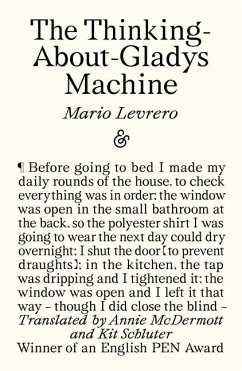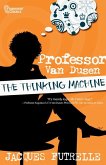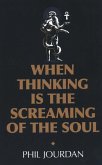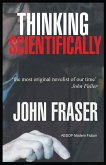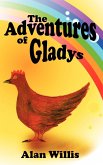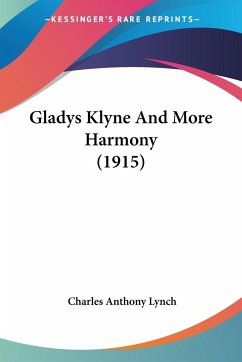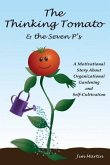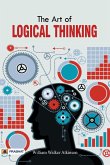"Levrero is an author who challenges the canonical idea of Latin American literature. If you really want to complete the puzzle of our tradition, you must read him." --Juan Pablo Villalobos, Granta Widely viewed as one of the most inventive bodies of work from 20th-century Uruguay, Mario Levrero's writing is distinguished by its bounteous imagination. In none other of the author's books is this imagination so clearly on display as in The Thinking-About-Gladys Machine, his first book of stories. It gathers a variety of Levrero's earliest and most formally inventive publications, ranging from dazzling single paragraph micro-fictions à la Donald Barthelme, to adventurous Lewis Carroll-esque tales of forty pages' length. From the shocking surreal twists of 'Street of the Beggars' to the Escher-like grammatical maze of 'The Boarding House' to the pseudo-fairy tale classic 'The Basement', this book explores uncanny domestic spaces, using the structures of the stories themselves as tools for re-inventing narrative possibility.

